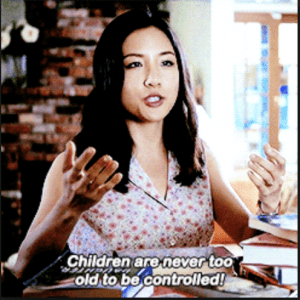Representing Women? Leadership Roles and Women in Canadian Broadcast News.
Cukier, Wendy, et al. “Representing Women? Leadership Roles and Women in Canadian Broadcast News.” Gender Management” An International Journal, vol. 31, no. 5/6, 18 Apr. 2016, pp. 374–395., doi:10.1108/GM-04-2015-0035.
This study mainly focused on four major Canadian news broadcasting companies to study the representation of women on Canadian media. The study mainly took into account of: how women appear on media, whether women are portrayed positively or negatively, and women’s roles on media. The results showed that although the percentage of appearance is similar, there were different expectations of appearances for women, women are under-represented as leaders and experts, portrayed more negatively, and more likely to be quoted. An interesting difference in the statistics is that the one private broadcaster that was in the study showed better results than the three public broadcasters. The statistics and findings are compared to previously done research in the same field and showed similar results. The research were done on four major news broadcasters in a major city in Canada, providing us with credible statistics and information. This study is useful for our research as it provides a view of women on media from a different country, showing that the under-representation of women is a global issue.
Women and News: A Long and Winding Road.
Ross, Karen, and Cynthia Carter. “Women and News: A Long and Winding Road.” Media, Culture & Society, vol. 33, no. 8, 22 Nov. 2011, pp. 1148–1165., doi:10.1177/0163443711418272.
With data from the 2010 Global Media Monitoring Project (GMMP), this study examines the improvements in women’s representation in the media. There has been a steady but slow increase in women’s visibility in the news; however, the statistics from GMMP shows that following the same progress, it will take another 43 years to achieve gender parity. The statistics show that political topics are often covered by men and women are left with “softe” topics. These statistics are improved in Asia and the Middle East as 43% and 48% of political stories are written by women, respectively; whereas the percentages are 32% for Europe and 27% for America. Female reporters often encounter problems when they are paired with an older man and loses the opportunities to present “serious” material; they also face the dilemma of “ageism,” which does not seem to affect male announcers as much. Though there are steadily more women journalists, it is still extremely difficult for them to rise to higher positions as the journalist field remains based on “masculine news values.” This study provided similar statistics showing that the women are gaining more recognition but many problems and obstacles still remain. It is useful for our research as it included interesting statistics that contrasted the different regions, showing that female reporters from the Middle East and Asia have slightly more access to political news than reporters from Europe and America. It is also worthwhile to note the problem of ageism, as it proposes a major difference of expectation from male and female reporters.
Journalist and Source Gender in Australian Television News.
Cann, David J., and Philip B. Mohr. “Journalist and Source Gender in Australian Television News.” Journal of Broadcasting & Electronic Media, vol. 45, no. 1, 7 June 2010, pp. 162–174., doi:10.1207/s15506878jobem4501_10.
Analyzing the prime-time news broadcasts, Australian researchers have concluded that despite the rise of female journalists, gender remains an essential factor in Australian news broadcasting. The balance of female and male anchors/announcers are slowly becoming equal; however, the main problem remains that the categories of news given to female announcers are drastically different from those given to male broadcasters. The study has shown that male reporters dominated in Politics (76.3%) and Male Sports (92.8%) while female reporters were dominant in Health topics (83.3%). These statistics relates to the concept of “soft news,” general events, and “hard news,” specific events. This issue has been addressed in other studies and continues to be prevalent as female reporters are unable to gain equal opportunities as male reporters. The researchers acknowledged that the statistics may not be representative of the entire Australian news broadcasting system, but the prime-time broadcasts studied are the major broadcasts in Australia. This study is useful for our research as it suggests the problem with female journalist isn’t simply the number of jobs offered to them but also their responsibilities and opportunities as a news anchor/announcer.
Why Can’t Hollywood Get Female Journalists Right?
Cogan, Marin. “Why Can’t Hollywood Get Female Journalists Right?” Daily Intelligencer, 16 Jan. 2015, nymag.com/daily/intelligencer/2015/01/hollywood-female-journalists.html.
This article from the New York Magazine comments and critiques on Hollywood’s portrayal of female reporters. Starting with a personal anecdote, author Marine Cogan recalls an incident where two teenagers joked that she would sleep with a football player to write a profile for the ESPN. This incident made Cogan question how female reporters are represented in popular media. The misrepresentation in popular TV shows such as House of Cards, where two female reporters were willing to do anything for a story, and Thank You for Smoking, where the reporter seduced “an ethically challenged tobacco lobbyist,” female reporters are often given the depiction of someone who sleeps with the sources. Rather than being a purely fictional problem, Cogan writes that many of her co-workers have experienced incidents where their professional interests were mistaken as personal ones. Since media is a dominant and influential factor in our society, it is crucial to realize that female reports are poorly represented and to fix the stereotypes. This article contributes to our research as it may offer a potential reason for the discrepancy between female and male roles on the news. How does the misrepresentation of female reporters in the media affect opportunities in the journalism field for women in real life?
What We Lose When We Lose Female Reporters.
Fong, Mei. “What We Lose When We Lose Female Reporters.” The New York Times, 11 Jan. 2018, www.nytimes.com/2018/01/11/opinion/female-pay-carrie-gracie.html.
This article from the Guardian is written on BBC’s attempt to improve the lack of women in journalism. The Lords committee in the UK has recently provided evidence that there are three times as many male reporters as there are female ones. The facts show that women are underrepresented as staff and experts in the field of news and current affairs broadcasting and that discriminatory problems still exist for women. Reports has shown that barriers such as ageism is still prevalent as there the over-50 male workforce is significantly larger than the female workforce in channels such as ITV News and Channel 4. BBC has taken measures such as the Expert Women training program and support for women presenters on local radio to improve the situation. Other solutions include more transparent recruitment and pay, flexible hours, and better gender balance. The problems pointed out in this article is also mentioned in other sources, confirming the validity of the concerns and the need for change. This article is useful as it provides some potential measures news broadcasters can take to ensure equal opportunities for women.
BBC Told to Tackle Lack of Women in News Broadcasting.
Conlan, Tara. “BBC Told to Tackle Lack of Women in News Broadcasting.” The Guardian, Guardian News and Media, 16 Jan. 2015, www.theguardian.com/media/2015/jan/16/bbc-told-tackle-lack-women-news.
When the British government asked BBC to release the salaries for their top on-air announcers, Carrie Gracie quit as she discovered that BBC paid their male editors 50% more than female editors. This “gross inequality” reflects the pay gap and the barriers for women to earn equal pay. Report has shown that Dow Jones, an American publishing company, pays the male employees on average 15% more than the female employees. The pay gap is especially unfair as the employees would hold the same job title and worked a similar amount of time; their age and work location is also taken into consideration. The pay gap has caused many women to quit their jobs, leaving the field of journalism with a more male-dominant perspective. This is troubling as having a balance of male and female reporters will introduce different perspectives and presentations of current events. Since the media is such a predominant part of our society, having a male-dominated viewpoint could be detrimental to how the world perceive events. This article is useful as it provides a concrete example of an experienced female reporter’s struggles. It offers another reason as to why women struggle in the field of journalism, on top of the barriers of ageism.







